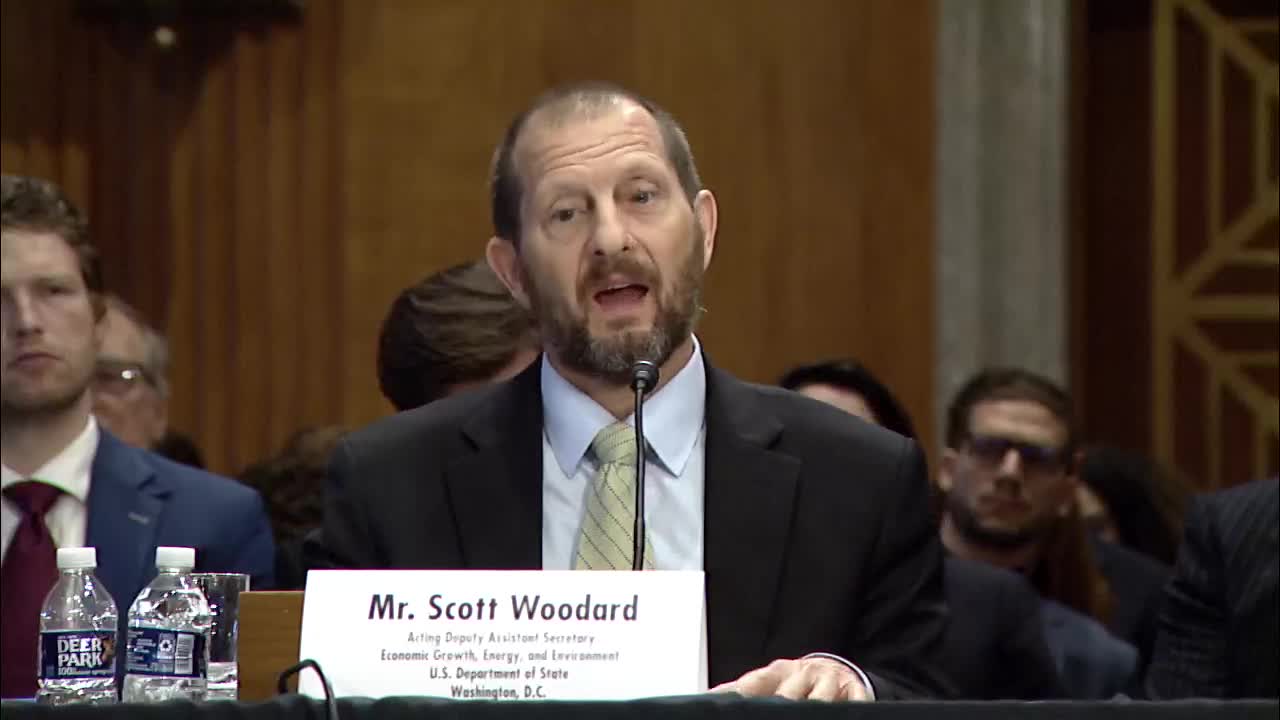Senators Discuss US Strategies to Secure Critical Minerals Supply Chains from Africa
July 30, 2025 | Foreign Relations: Senate Committee, Standing Committees - House & Senate, Congressional Hearings Compilation
This article was created by AI summarizing key points discussed. AI makes mistakes, so for full details and context, please refer to the video of the full meeting. Please report any errors so we can fix them. Report an error »

In a recent meeting of the U.S. Senate Committee on Finance, discussions centered on the critical importance of establishing partnerships between the United States and African nations to secure a reliable supply chain for essential minerals. This initiative aims to reduce American dependence on China, which currently dominates the global market for critical minerals, controlling approximately 85% of processing capacity.
Senators highlighted the significance of domestic mining efforts, such as the newly opened rare earth mine in Wyoming, the first in over 70 years, and the Mountain Pass mine in California, which is set to expand its production capacity significantly. These developments are seen as vital steps in enhancing U.S. competitiveness in the global market.
The committee also addressed the strategic implications of China's investments in Africa, where it has established a strong foothold in the mining sector. Concerns were raised about China's influence, which includes controlling key resources like cobalt and lithium, essential for advanced technologies and defense applications. Senators emphasized the need for the U.S. to actively engage with African countries to foster partnerships that can challenge China's dominance.
A key focus of the discussions was the role of the U.S. International Development Finance Corporation (DFC) in financing mining projects in Africa. Examples were cited, including a graphite mine in Mozambique that has received DFC support, facilitating the export of materials to the U.S. for refining. This collaboration is viewed as a model for future partnerships that can help secure critical minerals while promoting ethical labor practices.
Senators expressed a strong desire for American companies to invest in African mining operations, particularly in regions like the Democratic Republic of the Congo, which produces a significant portion of the world's cobalt. The meeting underscored the urgency of addressing forced labor issues linked to these supply chains, with a call for diplomatic efforts to ensure fair labor practices in mining operations.
In conclusion, the Senate committee's discussions reflect a growing recognition of the need for proactive U.S. engagement in Africa to build a sustainable and ethical supply chain for critical minerals. This initiative not only aims to bolster national security by reducing reliance on foreign sources but also seeks to foster economic partnerships that benefit both American and African communities. As the U.S. government works to navigate these complex relationships, the outcomes of these efforts could have lasting impacts on local economies and global supply chains.
Senators highlighted the significance of domestic mining efforts, such as the newly opened rare earth mine in Wyoming, the first in over 70 years, and the Mountain Pass mine in California, which is set to expand its production capacity significantly. These developments are seen as vital steps in enhancing U.S. competitiveness in the global market.
The committee also addressed the strategic implications of China's investments in Africa, where it has established a strong foothold in the mining sector. Concerns were raised about China's influence, which includes controlling key resources like cobalt and lithium, essential for advanced technologies and defense applications. Senators emphasized the need for the U.S. to actively engage with African countries to foster partnerships that can challenge China's dominance.
A key focus of the discussions was the role of the U.S. International Development Finance Corporation (DFC) in financing mining projects in Africa. Examples were cited, including a graphite mine in Mozambique that has received DFC support, facilitating the export of materials to the U.S. for refining. This collaboration is viewed as a model for future partnerships that can help secure critical minerals while promoting ethical labor practices.
Senators expressed a strong desire for American companies to invest in African mining operations, particularly in regions like the Democratic Republic of the Congo, which produces a significant portion of the world's cobalt. The meeting underscored the urgency of addressing forced labor issues linked to these supply chains, with a call for diplomatic efforts to ensure fair labor practices in mining operations.
In conclusion, the Senate committee's discussions reflect a growing recognition of the need for proactive U.S. engagement in Africa to build a sustainable and ethical supply chain for critical minerals. This initiative not only aims to bolster national security by reducing reliance on foreign sources but also seeks to foster economic partnerships that benefit both American and African communities. As the U.S. government works to navigate these complex relationships, the outcomes of these efforts could have lasting impacts on local economies and global supply chains.
View full meeting
This article is based on a recent meeting—watch the full video and explore the complete transcript for deeper insights into the discussion.
View full meeting